Faculty
| Photo | Name | Faculty Positions | Primary Appointment | Research Category | Research Interest | Contact |
|---|---|---|---|---|---|---|
 | Alberts, Susan | Robert F. Durden Distinguished Professor | Biology |
| I study the links between life history, ecology, quantitative genetics, and behavior. I am particularly interested in how an animal's social environment both provides opportunities and imposes costs, particularly in the context of ecological challenges. | |
 | Baker, Paul A. (He/Him) | Professor Emeritus | Nicholas School of the Environment (Earth and Climate Sciences) |
| My current research addressed the geologic, climatic, and biologic evolution of tropical South America, especially the Amazon and Andes, covering the age of the rain forest (~65 million years to the future). | |
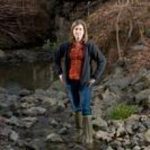 | Bernhardt, Emily | James B. Duke Distinguished Professor | Biology |
| Watershed Biogeochemistry, Aquatic Ecosystem Ecology and Freshwater Science | |
 | Cassar, Nicolas | Professor | Nicholas School of the Environment (Earth & Ocean Sciences) |
| Our research focuses on biogeochemistry and ecophysiology, with the objective of constraining the mechanisms governing carbon, oxygen and nitrogen cycling, and climate. | |
 | Christensen, Norm | Professor Emeritus | Nicholas School of the Environment (Environmental Science & Policy) |
| Our research focuses on the effects of disturbance on structure and function of populations, communities and ecosystems. Ongoing studies include an analysis of patterns of forest development following cropland abandonment as these are affected by environment, stand history and plant demographic patterns. | |
 | Clark, James S. | Professor | Nicholas School of the Environment (Environmental Science & Policy) |
| Research in the Clark lab focuses on biodiversity and global change, including how species coexist and how they are influenced by changing climate and natural and human disturbance. Studies range in scale from field plots to continental data sets. | |
 | David, Lawrence | Associate Professor | Molecular Genetics & Microbiology |
| We study interactions between nutrition and gut microbial communities in humans. | |
 | Donaldson, Jason (He/Him) | Assistant Professor | Nicholas School of the Environment (Environmental Natural Sciences) |
| My research focuses on community interactions and how they feedback to ecosystem processes. I primarily work in savannas, where I combine large field-based experiments with modelling techniques to develop and test ecological concepts. | |
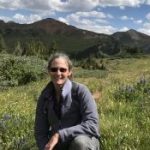 | Donohue, Kathleen | Professor | Biology |
| We investigate the genetic basis of adaptation, including the evolution of phenotypic plasticity and maternal effects, the adaptive value of epigenetic modifications, and other forms of genotype-environment interaction. | |
 | Doyle, Martin | Professor | Nicholas School of the Environment (Environmental Science & Policy) |
| Our research focuses on the science and policy of rivers and water in the US. Our work ranges from fluid mechanics and sediment transport to infrastructure finance and federal water policy. | |
 | Drea, Christine | Professor | Evolutionary Anthropology |
| Our research involves the comparative and integrative study of the evolution, function, development, and mechanisms of mammalian social behavior, focused on female-dominant species (lemurs, hyenas, meerkats). | |
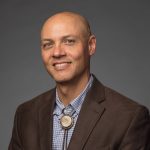 | Emanuel, Ryan E. (He/Him) | Associate Professor | Nicholas School of the Environment (Environmental Social Systems) |
| Ecohydrology, Ecosystem Ecology, Environmental Justice | |
 | Gibert, Jean Philippe | Assistant Professor | Biology |
| I study how phenotypic traits determine the structure and dynamics of food webs as well as how changes in environmental conditions mediate these processes using a mixture of theory and data. | |
 | Gunsch, Claudia | Professor | Civil and Environmental Engineering |
| Our research focuses on characterizing and engineering environmental microbiomes. We apply fundamental concepts from the fields of microbiology, genomics and bioinformatics to environmental engineering applications. | |
 | Halpin, Patrick | Professor | Nicholas School of the Environment (Marine Science And Conservation) |
| Our research focuses on marine geospatial analysis, ecological applications of geographic information systems and remote sensing; and marine conservation and ecosystem-based management. | |
 | He, Liyin (She/Her) | Assistant Professor | Nicholas School of the Environment (Environmental Science & Policy) |
| My research focuses on understanding the relationship between ecosystem, air, and water in the face of climate change. I am particularly passionate about translating fundamental ecological knowledge into applied practices that deliver socioeconomic benefits. These include, but are not limited to, (1) enhancing forest management to increase carbon sequestration, (2) improving crop yields to support food security, and (3) mitigating urban heat to promote public health. To address these challenges, I employ three primary approaches: (1) spatiotemporal data analysis to interpret field and satellite observations, (2) machine learning techniques to generate novel datasets, and (3) process-based ecosystem models to uncover underlying mechanisms. | |
 | Heffernan, Jim | Associate Professor of Ecosystem Ecology and Ecohydrology | Nicholas School of the Environment (Environmental Science & Policy) |
| I study wetlands, streams and rivers, and how they shape and are shaped by biotic, geophysical, and social processes. | |
 | Hunt, Dana | Associate Professor of Microbial Ecology | Nicholas School of the Environment (Marine Science And Conservation) |
| I study microbial community and population responses to anthropogenic environmental alterations including climate change and contaminants. | |
 | Johnson, Zackary | Associate Professor of Biological Oceanography and Marine Biotechnology | Nicholas School of the Environment (Marine Science And Conservation) |
| The Johnson Lab broadly studies the abundance, diversity and activity of marine microbes. We are biological oceanographers, marine molecular ecologists, marine microbiologists and biogeochemists. Our research focuses on the marine cyanobacteria Prochlorococcus, the most abundant phytoplankton in the open oceans. | |
 | Katul, Gabriel G. | Distinguished Professor | Civil and Environmental Engineering |
| carbon-water relations in the soil-plant-atmosphere system | |
 | Lipshutz, Sara | Assistant Professor | Biology | |||
 | Lowe, Craig | Assistant Professor | Molecular Genetics & Microbiology |
| My lab is interested in understanding the genetics of how vertebrate species adapt to new environments. We are currently focusing on the threespine stickleback fish as a model for vertebrate adaptation, as well as recently evolved traits in humans that have medical relevance. | |
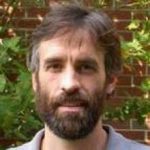 | Morris, Bill | Professor | Biology |
| We study responses of the abundances and geographical distributions of species to environmental change, using a demographic approach and focusing on plants, birds, and butterflies. | |
 | Nowacek, Douglas | Randolph K. Repass and Sally-Christine Rodgers University Distinguished Professor of Conservation Technology in Environment and Engineering | Nicholas School of the Environment (Marine Science And Conservation) |
| In the Nowacek lab we study the acoustic ecology of marine megavertebrates, including the ways in which animals use sound to explore their environment as well as the impacts of anthropogenic ocean noise on them. | |
 | Nowicki, Steve | Professor | Biology |
| Our lab studies animal communication and sexual selection from an integrative perspective using a wide range of behavioral ecological, neuroethological, developmental, genetic, and evolutionary modeling techniques. Birds are our most common study subject, but we've also worked with spiders, shrimp, lobsters, insects, lizards, and primates, including humans. | |
 | Nunn, Charles (He/Him) | Professor | Evolutionary Anthropology |
| Charles Nunn uses evolutionary approaches to understand and improve human and animal health. He and his research group investigate the ecology and evolution of infectious disease, drivers of variation in sleep, and the links between ecology, evolution and global health. Charlie conducts fieldwork in Madagascar, and he directs the Triangle Center for Evolutionary Medicine (TriCEM). | |
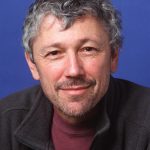 | Oren, Ram (He/Him) | Nicholas Distinguished Professor of Earth Systems Science | Nicholas School of the Environment (Earth and Climate Science) |
| Tree Hydraulics, Forest Hydrology, Biosphere-Atmosphere exchanges of mass/energy | |
 | Pimm, Stuart | Doris Duke Distinguished Professor of Conservation Ecology | Nicholas School of the Environment (Environmental Science & Policy) |
| From lions to pandas to birds, we study conservation ecology and biodiversity mapping of tropical regions. | |
 | Qiu, Tong | Assistant Professor | Nicholas School of the Environment (Environmental Science & Policy) |
| The Qiu lab studies and predicts how climate change and land-use changes drive biodiversity shifts across multiple scales, while also quantifying the feedback of biodiversity changes on carbon and water cycles between the biosphere and atmosphere. Our approach integrates remote sensing, statistical modeling, and Earth system models. | |
 | Rausher, Mark D. | John Carlisle Kilgo Distinguished Professor | Biology |
| Our lab studies the genetic changes involved in adaptation and speciation. | |
 | Read, Andrew | Stephen A. Toth Distinguished Professor | Nicholas School of the Environment (Marine Science And Conservation) |
| Conservation biology, ecology, behavior, and population biology of marine megavertebrates | |
 | Reynolds, James F. | Professor Emeritus | Nicholas School of the Environment (Environmental Science & Policy) |
| Global desertification | |
 | Richardson, Curtis | Research Professor of Resource Ecology | Nicholas School of the Environment (Environmental Science & Policy) |
| Wetlands, carbon sequestration and phosphorus biogeochemistry, ecosystem restoration | |
 | Richter, Daniel | Professor | Nicholas School of the Environment (Earth & Ocean Sciences) |
| My research and teaching link soils with ecosystems and the wider environment, most recently Earth scientists’ Critical Zone. He focuses on how humanity is transforming Earth’s soils from natural to human-natural systems, specifically how land-uses alter soil processes and properties on time scales of decades, centuries, and millennia. | |
 | Rittschof, Daniel | Norman L. Christensen Distinguished Professor | Nicholas School of the Environment (Marine Science And Conservation) |
| I am a chemical ecologist and toxicologist. I work on chemicals that organize marine communities, biofouling, toxicity of fouling management coaitngs and plastics and am beginning to work in restoration ecology | |
 | Schlesinger, William H. | James B. Duke Professor of Biogeochemistry, Emeritus | Nicholas School of the Environment (Earth & Ocean Sciences) |
| Global biogeochemical cycles, soil science, desert ecology, | |
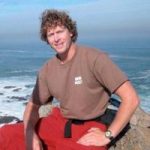 | Silliman, Brian | Rachel Carson Professor | Nicholas School of the Environment (Marine Science And Conservation) |
| I use observations of natural communities throughout the world as primary inspiration for my study questions. Most generally, my teaching and research efforts are focused on community ecology of salt marshes and rocky shores, conservation of coastal wetlands and reef fish populations, physical-forcing and disease-mediated control of food web dynamics, plant-animal interactions and evolution of fungal farming behavior. | |
 | Urban, Dean L. | Professor | Nicholas School of the Environment (Environmental Science & Policy) |
| I study the causes of landscape heterogeneity and the consequences of this heterogeneity for populations, communities, and ecosystem processes. | |
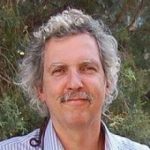 | Vilgalys, Rytas | Professor | Biology |
| We study the evolutionary genomics of plant-fungal symbiosis and the molecular phylogenetics of fungal diversity. | |
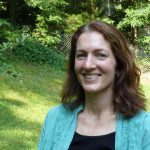 | Wernegreen, Jennifer Jo | Lee Hill Snowdon Associate Professor | Nicholas School of the Environment (Environmental Science & Policy) |
| Research in our lab centers on environmental and evolutionary genomics, primarily in bacteria. Broadly, our group explores mechanisms shaping genetic and functional variation in microbes that play important roles in the natural environment. | |
Willis, John | Professor | Biology |
| We conduct research on questions relating to the evolution of adaptation, reproductive isolation, breeding systems, inbreeding depression, and floral traits in natural plant populations. | ||
 | Wright, Justin P. | Professor | Biology |
| We are a research lab at Duke University exploring the causes and consequences of patterns of biological diversity across the planet. We combine observational and experimental approaches with modelling to develop and test hypotheses and build towards synthetic ecological theory. | |
 | Yoder, Anne D. (She/Her) | Professor of Biology; Interim Chair, Evolutionary Anthropology | Biology |
| Biodiversity of Madagascar; conservation and evolutionary genomics; speciation biology |
